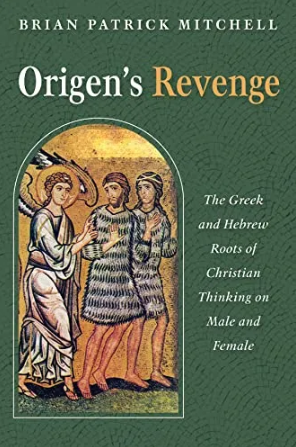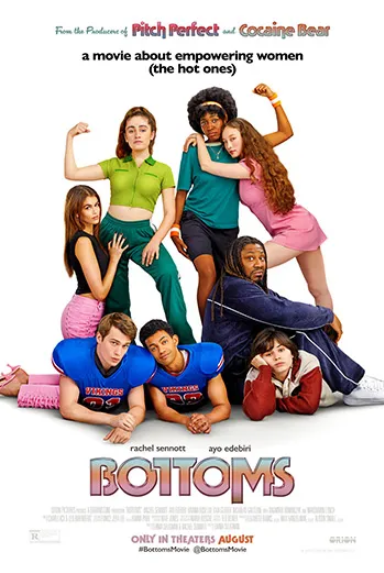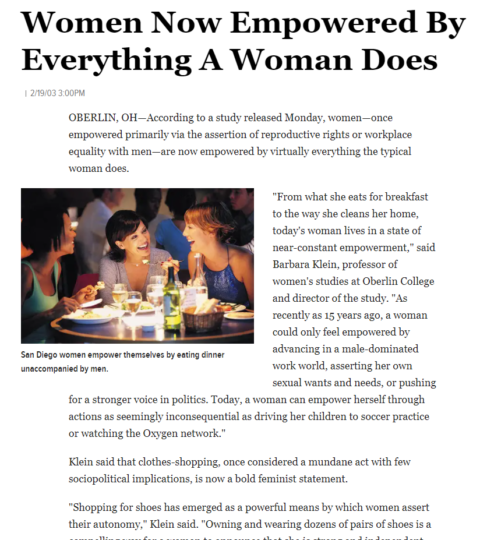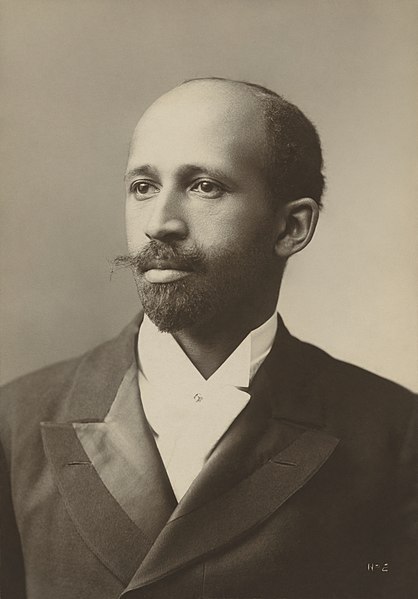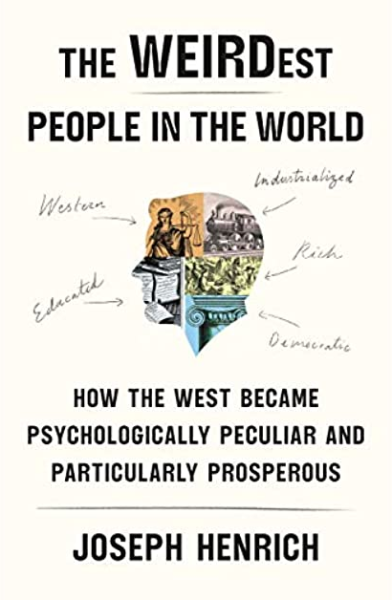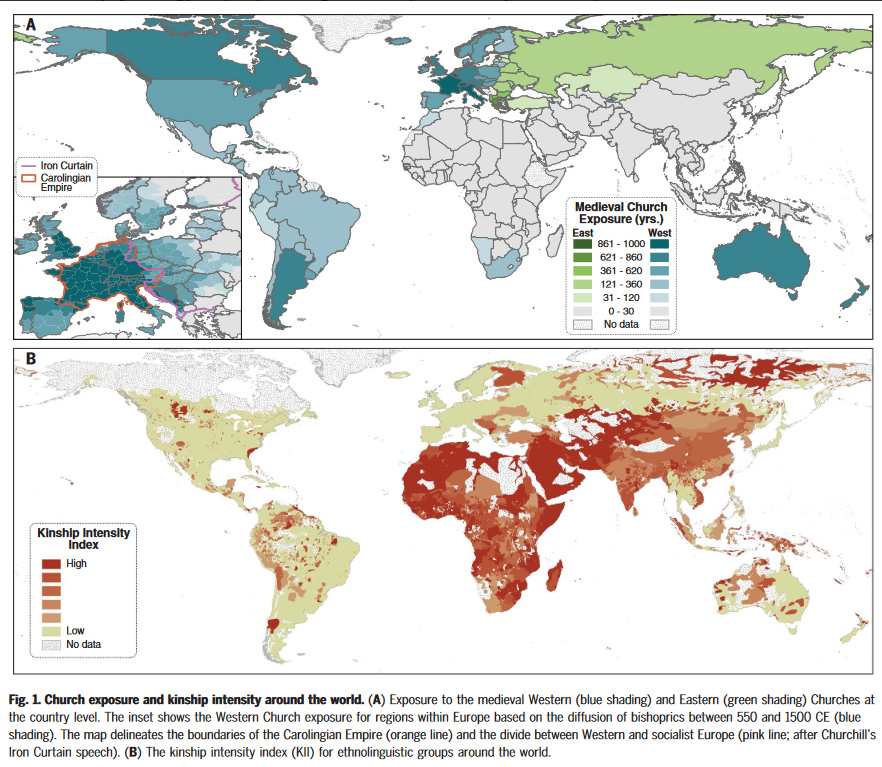The most recent book review from Mr. and Mrs. Psmith discusses Brian Patrick Mitchell’s Origen’s Revenge: The Greek and Hebrew Roots of Christian Thinking on Male and Female:
The following is an email exchange between the Psmiths, edited slightly for clarity.
John: You know dear, we’ve been writing this book review Substack for eight months now, ever since that crazy New Year’s resolution of ours, but we still haven’t done “the gender one”. And I feel like we have a real competitive advantage at this, since both sides of the unbridgeable epistemic chasm between the sexes are represented here. So let’s settle some of the eternal questions: Can men and women be friends? Who got the worse deal out of the curse in the Garden of Eden? And what’s up with your abysmal grip strength anyway?
I was perplexed by these and other questions, but then I picked up this book on the theology of gender, and it all got a lot clearer. The author is Deacon Brian Patrick Mitchell, an Eastern Orthodox clergyman and retired military officer. In a previous life, Mitchell testified before the Presidential Commission on the Assignment of Women in the Armed Forces and then followed that up with a book called Women in the Military: Flirting with Disaster, so he’s been interested in the differences between men and women for a while.
People have been observing for centuries that Christianity can be a little bit schizophrenic on the subject of gender relations. From the earliest days of the Apostolic era, there are two strains in evidence within Christianity: one which shores up the gender divisions common to most agricultural societies, and another which radically transcends them. Oftentimes both strains are visible within a single person! Thus you have the Apostle Paul on the one hand saying in his letter to the Ephesians:
Wives, submit yourselves unto your own husbands, as unto the Lord. For the husband is the head of the wife, even as Christ is the head of the church: and he is the saviour of the body. Therefore as the church is subject unto Christ, so let the wives be to their own husbands in every thing. (Ephesians 5:22-24)
But then in Galatians:
There is neither Jew nor Greek, there is neither bond nor free, there is neither male nor female: for ye are all one in Christ Jesus. (Galatians 3:28)
For as long as Christianity has existed, there have been people emphasizing one of these tendencies as the “true” Christian message on gender while attempting to minimize the other. Sometimes these arguments are interesting and sometimes they bring out something important (I’m a fan of Sarah Ruden’s Paul Among the People on the one side, and of Toby Sumpter’s fiery homilies on the other), but I think in both cases they’re falling into the error of trying to simplify something that is actually complicated. There’s a certain kind of person who can’t handle inconsistency, and that kind of person is going to have trouble with Christianity, because to a finite being the products of an infinite mind will sometimes appear inconsistent. Does Christianity want women to be subject to men, or does it want men and women to transcend their natures? The answer is very clearly both.
Mitchell’s book is compelling because it doesn’t try to minimize or hide one of these tendencies, but acknowledges up front that they’re both there and both have to be struggled with. It then advances the novel (as far as I know) argument that these two tendencies with regard to gender relations actually reflect the two major ethnic and cultural influences on the early Church: Hebrew and Greek.
The ancient Hebrew attitudes towards male and female are apparent from the beginning of the Bible: God creates Eve from out of Adam’s rib, and she is called Woman because she was taken out from Man. Thus the woman is subordinated to the man, yet fundamentally made of the same stuff as him. God calls the division of humanity into men and women good, He blesses families and helps barren women conceive, He commands His people to be fruitful and to multiply, and He promises Abraham that his seed shall be numbered as the stars of heaven. The entire Old Testament is a story of families, sometimes dysfunctional families, but families nonetheless, as opposed to lone men roaming the earth as in the Iliad or Bronze Age Mindset. Male headship is assumed, but it’s also assumed that men are fundamentally incomplete without something that only women can give them: a home, a future, and the thing that makes both, children.
So in Mitchell’s telling, the Hebrew legacy is responsible for the more “trad” side of early Christianity. What about the Greeks? Well we already discussed in our joint review of Fustel de Coulanges’ The Ancient City how ancient Greek society was basically the world of gangster rap: honor, boasting, violence, women as trophies, women as a way of keeping score, women torn wailing from the arms of their parents or husbands and forced into marriage or concubinage or outright slavery. You will be shocked to learn that this culture did not hold a high opinion of women, procreation, or the marital union. Greek philosophy is a massively complicated and diverse beast, but there’s a strong tendency within it to associate women with physicality, nature, and brute matter, and to disdain all of these things in favor of rationality, spirit, and the intellect (all coded as male).
Our readers are probably thinking, “Hang on a minute, I thought the Hebrews were the patriarchal ones, do you mean to say that the hyper-masculine and hyper-misogynistic culture was the one that decided maleness and femaleness didn’t matter?” Well yes I do, and it’s pretty easy to see why if one hasn’t been totally brainwashed by modernity, but maybe it’ll be more convincing if a woman explains it to them.
Jane: Well, I think you gave a pretty accurate description of actually-existing ancient Greek culture, but we have to remember that the Church Fathers weren’t classicists poring through the corpus trying to accurately characterize the past. Rather, they were men of late antiquity, mostly educated in a “Great Books” canon heavy on the classical philosophy — and the worldview of philosophers is often quite different from the general norms and presuppositions of their society as a whole. (Not that modern — by which I mean post-1600 — classicists have always recognized this; E.R. Dodds’s The Greeks and the Irrational is considered a seminal work of classical scholarship precisely because it undercuts a long tradition of taking the philosophers as representative of their culture rather than in conflict with it.)1 So the direct influence on early Christians wasn’t the world Fustel de Coulanges describes (which covers roughly the Greek Dark Ages through the Archaic period), but the texts of the period that came after, as interpreted by an even later era. It’s a bit like looking at our contemporary small-l liberals, who draw heavily on a tradition that rose out of Enlightenment philosophy, which in turn was an outgrowth of and/or reaction to the medieval and early modern worlds: they’re not not connected to all that, but Boethius is not going to be the most helpful context for reading Rorty. You should probably look at Locke instead.
1. Bonus, and shorter, Dodds: “On Misunderstanding the Oedipus Rex“, which you probably do too.

